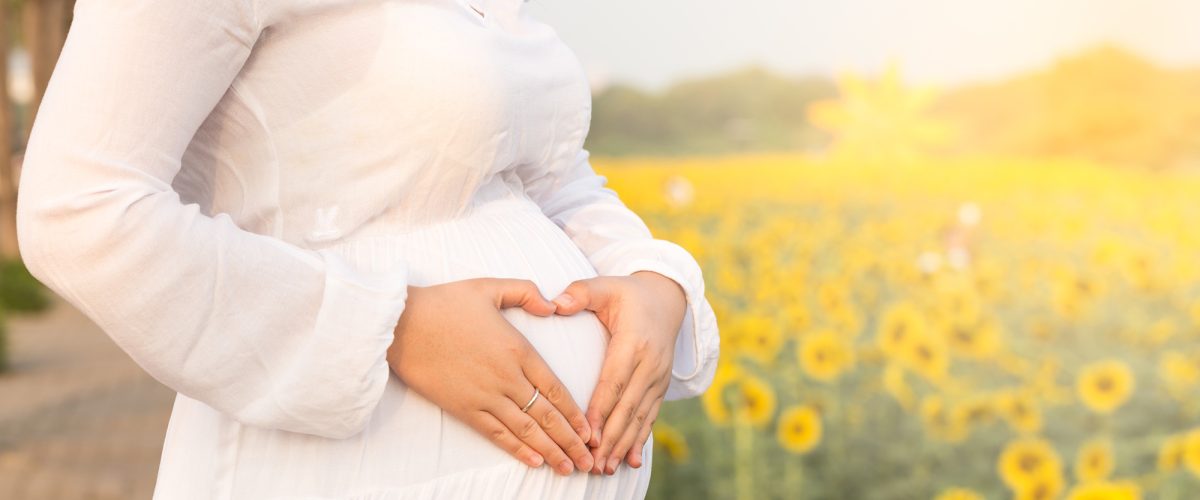The traumas and burdens inflicted by COVID-19 are borne in our bodies, brains, hearts and communities.
Physician Bessle van der Kolk explores the connection between trauma, the brain and the body in his fascinating book The Body Keeps the Score. Although it will be some time before we have more data, the emerging statistics, along with our stories and our bodies, keep score of our collective trauma and point clearly to the sacred invitation for Christian communities to enter into a season of transformative healing, abundant grace and inspiring creativity.
I feel clarity about the need for healing and the church’s irreplaceable role as participant in God’s healing work. What is unclear for me is why the church, specifically the denomination I call home, continues to reject the leadership of women uniquely gifted and called to aid in healing and transformation.

Hannah Coe
What an odd thing to feel both clarity and a heavy stone in my heart.
The heavy stone is an intolerable truth: not only are women’s vocational callings and ministries being broken, not only are women’s bodies at significantly increased risk of being broken due to lack of access to vital reproductive health care, but a significant number of American women find themselves in a Baptist landscape that continues to find the breaking of their bodies and dreams tolerable. An acceptable cost of doing business. What kind of business are we up to? Why do we think we can participate in divine healing while we break the women?
Lessons from a peer group
Nearly 10 years ago, I joined a peer group of women with very young children. We named our peer group “Moms in Ministry.” At the time, all of us served as staff ministers in churches. Of the five women in our group, four of us have, at one time or another, stepped away from pastoral leadership in the church. Each person who stepped away experienced issues intersecting with gender, toxic church systems and/or motherhood.
That’s 80% of a highly educated, highly resourced, highly privileged group of white women. Currently three of us serve in in full-time local church ministry.
Early in our time together, we read a book of essays about motherhood and ministry. When we came together to discuss the book, we all resonated with the stories of women navigating motherhood and ministry. But we also named the harsh truth borne out in the essays: most of the women ended up leaving ministry because the demands of ministry were not compatible with the demands of motherhood.
“These years hold many stories of gifted and called sisters who found ministry incompatible with their womanhood and their motherhood.”
This summer marked 15 years since my first experience serving in ministry as an intern. The last 15 years have held goodness, fruitfulness, authenticity and the privilege of a cloud of male and female supportive witnesses to God’s call on my life. Every day, I am bumfuzzled by this grace.
But these years hold many stories of gifted and called sisters who found ministry incompatible with their womanhood and their motherhood. The number of stories I could tell you makes me feel sick to my stomach. The broken dreams, ministries and bodies are the heavy stone in my heart.
A number of weeks ago in conversation, a colleague said, “You know, the one issue our denominational body has come closest to agreeing on is women in ministry …”
“… and we don’t even agree on that,” I finished his sentence.
“Exactly,” he said.
The stories behind the report
The State of Women in Baptist Life report published by Baptist Women in Ministry in June points clearly to this truth. While I hope many of our Baptist churches will read and engage the report, I wish each person who reads it could feel in their hearts that behind every statistic is a person whose body keeps the score. And behind the women represented in each statistic is a community of faith, a part of Christ’s body, wounded by the sin of misogyny, ingrained prejudice against women, and robbed of the experience of full healing in Christ.
“Behind every statistic is a person whose body keeps the score.”
More than three decades ago, a generation of women, called and gifted for the work of leading the church, watched their futures implode in Baptist life. Many of these women dedicated their vocational energies to building a future for the women coming behind them. They became academicians, chaplains, counselors, seminary presidents, authors, student ministry leaders, nonprofit leaders and more. Few of them found a vocational home in the church. I, along with many other young women in ministry, stand on the shoulders of these matriarchs, whose bodies and souls keep the score of the hurt they’ve endured from the church they love so dearly.
This week, one of these matriarchs voiced aloud the prayerful cry of her heart after reading the latest State of Women in Baptist Life report, “O God, do not let all I have given my life for amount to nothing!”
These are our bodies, broken for what?
And now, the overturn of Roe
Upon the overturn of Roe v. Wade, and the immediate implementation of the abortion ban in Texas, the stone in my heart became a boulder. I thought first of the women I’ve journeyed with.
The mom of three young children who found out she was pregnant (surprise!). The pregnancy was ectopic, and she made the painful decision to end the pregnancy so she would not leave her children without a mother.
The chaplain whose baby suffered a catastrophic stroke in utero and chose to end her pregnancy because she did not want her baby boy to “suffer greatly and die a painful death” if he survived to full term.
The women (and children) living in situations of horrific domestic violence whose access to reproductive health care is one of the only ways for them to prevent a partner from forcing them to have more and more children, a common form of abusive control.
What will happen to them now? What will happen to women in ministry, many of whom find themselves in religious institutions with misogynistic impulses, who need reproductive care or are the only safe place for other women who need reproductive care?
“I am tired of false dichotomies like ‘pro-life’ and ‘pro-choice.’”
Abortion law in Texas is intentionally ambiguous and designed to intimidate mothers, doctors, pharmacists, pastors and more. Vital reproductive care already is being limited and refused because practitioners do not want to be sued for breaking a law that is unclear. As has been the case in other parts of the world with similar “heartbeat laws,” the expectation is to see more cases in which a baby’s heartbeat outlasts a mother’s ability to survive infection or hemorrhage.
I do not wish for more abortions. Our faith calls us to embody a reality in which human life, and the potential for human life, is treated as sacred and precious. I guess this makes me pro-life? The lives of mothers are sacred too, and the amount of violence, abuse and neglect we find tolerable against women’s bodies, and particularly the bodies of women of color, is intolerable to me. I guess this makes me pro-choice?
I am tired of false dichotomies like “pro-life” and “pro-choice.” What I want is for Christians to find the moral courage to treat women and children like full human beings, an ethic our earliest faith ancestors would be proud of.
A season of transformative healing
The call to embrace a season of transformative healing with abundant grace and inspiring creativity is here and now.
Our Christian tradition points us to a body whose transformed brokenness changed the world. The body of Jesus bore betrayal, injustice and sinful domination, the gaping wounds of which became the birthplace of a hopeful future of love and generativity beyond imagination. Christians refuse to let Jesus’ self-sacrificing love be for naught. Will we refuse to let women’s self-sacrificing love, the brokenness borne by their bodies and ministries, be for naught? Are we brave enough to claim a different future for women, and therefore, for us all?
I have named here immensely complex realities. In these difficult and confusing days, I hope we will claim the immensely powerful story of Jesus because we’re gonna need it if we are to heal from the inside out. There are no simple solutions or easy answers. But here are a few ideas.
Silence on important issues does not cultivate healing. Healing requires us to break the silence. Congregations are in a tough spot in our highly politicized and polarized environment. Running from this reality is futile; it’s time to face it and talk about it. I assure you, this is a matter of life and death for women.
How can your congregation support your pastors to address issues affecting women from the pulpit and places of public leadership? How can your pastors equip the congregation to lean into an equitable future for women in ways that are healing, communal and transformational? Elizabeth Hagan’s Brave Church is an excellent small group resource for cultivating brave conversation in community.
“We would rather be numbed, nice and nearly dead than tell the truth about our lives, let alone the church.”
Telling the truth is truly brave. We would rather be numbed, nice and nearly dead than tell the truth about our lives, let alone the church. Yet, healing requires honesty. A group of church friends and I are reading Jacqui Lewis’ Fierce Love: A Bold Path to Ferocious Courage and Rule-Breaking Kindness that Can Heal the World as we imagine a healed and hopeful future. Lewis says, “You cannot love what you don’t fully see.”
In order to love the women and girls in your church and community, their truth needs to be fully known. Bear witness to the stories of women in your church and community. Call your congregation to examine its history and leadership structure and make intentional adjustments to reflect the fullness of Christ’s body. Telling the truth is hard, but it will unleash the Spirit’s healing.
The big things and the little things need to be addressed if the future is to be different. I will not forget careless, well-intentioned comments like, “Wow, life must be really hard for your husband, taking care of those three girls with you never around.” Thirty months of pregnancy; 60 hours spent in mostly unmedicated labor; 55 months of nursing; countless hours mothering, running my home and serving as a pastor. And my husband alone bears the load?
We must repent from misogyny in all its forms, including careless, well-intentioned comments. Have you heard the phrase “death by a thousand cuts”?
Misogyny is everywhere. It should be nowhere in the church. Yet, the church is an institution upholding systems and structures that oppress women. Our silence and denial of the truth disempowers women and empowers misogyny.
“Misogyny is everywhere. It should be nowhere in the church.”
What if congregations were brave enough to proclaim an end to misogyny? To engage systemic issues affecting women’s bodies, minds and souls? Does your church provide equal pay and benefits for women on staff? Do women have an equal share in your church’s leadership? Does your church have generous family leave policies to support full- and part-time employees in the event of the birth or adoption of a baby? Has your congregation been educated and resourced around women’s equity, challenges unique to women and practical ways to support women in the church? Are domestic violence/abuse and sexual harassment proactively addressed in your church?
Let’s replace misogyny with the celebration and uplifting of women’s precious and beloved callings, ministries and bodies.
The facts tell us that the greatest threat to extremism and violence are empowered and educated women. You have educated us. Now would you empower us? Would you let us lead, let us partner with you to imagine, let us partner in God’s ministry of healing so that together we can resist the violence and extremism of our time and labor for a thriving future? After all, these are our bodies, broken for you.
Hannah Coe serves as senior pastor of Calvary Baptist Church in Waco, Texas.
Related articles:
Women in ministry face daily slights that add up, BWIM leaders explain
While the SBC shuns women as preachers, CBF celebrates a new generation of women as preachers
Annual report on Baptist women in ministry finds some gains but serious losses due to COVID
If you’re glad women were the first Easter preachers, what are you doing about it now? | Opinion by Meredith Stone


